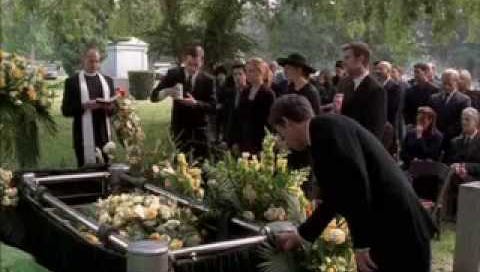
Two weeks ago, I finally got to meet the great Daniel Kahneman. Since then, his work has been strongly present in my mind, especially his “peak-end rule.” Quick version: How people remember an experience heavily depends on the way the experience ends. A standard summary:
The peak-end rule states that the way an experience ends determines the happiness we ascribe to it. There are two classic experiments demonstrating the peak-end rule. Kahneman and his associates showed, in 1993 that participants exposed to 30 seconds of 14 degree ice water (very cold!) rated the experience as more painful than participants exposed to 90 seconds of exposure to 60 seconds of 14 degree ice water plus 30 additional seconds of 15 degree ice water… We will rate an experience as less painful, then, if it ends on a slightly less painful way. The “peak end” in this case was a one degree difference in water temperature.
Many studies support the peak-end rule. People will prefer and even choose exposing themselves to more pain (objectively determined) if the situation ends with them feeling less pain… If you are having a tooth drilled, you’d find it was less painful if the dentist ends the procedure with some lightening of the drill’s intensity, even if the procedure is longer than it would otherwise be. Counterintuitive? Yes. Common? Definitely.
We approach not only our experiences of pleasure and pain in this way, but also our acquisition of objects that we’re given as gifts. As reported in a review article by Dartmouth psychologist Amy Do and collaborators (2008), participants given free DVD’s were more pleased with the gifts if they received the more popular ones after the less popular ones, then if they received the exact same DVD’s in the opposite order. When it comes to pleasure, it’s all about the ending.
If you take the peak-end rule seriously, human life seems rather tragic, because it almost always ends badly. The best-case scenario is that you die peacefully in your sleep surrounded by loved ones. The more likely scenario is that you endure years of progressively worsening pain, then die miserably in a hospital. And this whistles past early deaths from disease, accident, or violence.
Can you draw comfort from the fact that people will remember you fondly when you’re gone? If the peak-end rule is right, seemingly not. After all, since life ends badly, won’t people negatively encode the totality of your life?
The answer heavily depends on what counts as “the end of your life.” If the day you perish is the end, your life story will end badly. But why not add an extra chapter to the book of your life? I’m thinking, naturally, of the funeral. It’s a time for everyone who cared about you to come together, honor you, praise your accomplishments, and share happy stories. As long as your life officially ends with a fine funeral rather than a wretched death, our memories of the dead can evade the ugliness of mortality. Is it too much of a stretch to say that the ubiquity of funerals suggests that human societies on some level grasp the peak-end rule – and redefine “the end of life” to enhance the memories of the living?
This is admittedly speculation; indeed, I wouldn’t be shocked if the peak-end rule simply failed to replicate. Yet it’s still intriguing. One implication is that, all else equal, people will have worse memories of deceased people with unpleasant or non-existent funerals. The obvious problem, of course, is that all else is almost never equal, because we’re less likely to celebrate the lives of disappointing people after they die.
I’ve never been big on funerals, but this Kahnemanian perspective makes me less supportive of cutting corners. The key corners not to cut, however, are emotional rather than financial. Instead of buying a $10,000 box for the dead, why not spend extra time sharing memories of a life well-lived? Instead of leaving money in your will for a flowery ceremony, why not leave behind an uplifting video farewell when you’re still well enough to inspire those you leave behind?
P.S. Years ago, I tweeted, “Don’t make people bend the truth at your funeral.” You could object, “No, we should bend the truth in order to give people’s loved ones brighter memories of the dead.” But the obvious reply is that it’s easier for people to paint a rosy picture of your life if it’s true. So repent before it’s too late!
The post appeared first on Econlib.










"The best-case scenario is that you die peacefully in your sleep surrounded by loved ones. " This line reminds me of the old Tommy Cooper joke:
'When I die, I want to go peacefully like my grandfather did – in his sleep. Not yelling and screaming like the passengers in his car."
Something seems fishy. There is no way human temperature perception is sensitive to a precision of one degree such as would be necessary to distinguish between 14 and 15 degree ice water and provoke such significant psychological reactions. Physical temperature measurement gets very noisy at that degree of granularity, and even inference from measuring the infrared requires assuming very strictly controlled standard conditions when one is claiming precision in the decimal places. Even good modern digital thermocouples are not all that great and have to be periodically recalibrated, and the really accurate and precise ones cost a fortune.